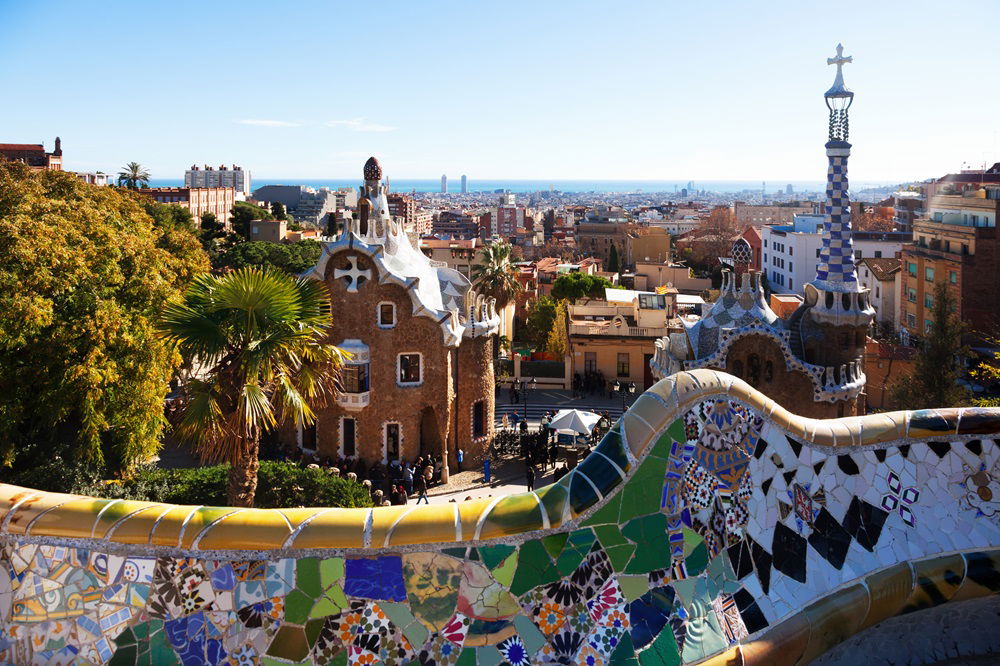
Emigrating to Spain
Are you dreaming of a life under the Spanish sun? The mild climate, the laid-back way of life and the comparatively low cost of living make Spain a popular destination for expats. But before your new start becomes reality, there are a few things you should consider. From bureaucratic requirements to finding accommodation – we will show you what you need to think about when emigrating to Spain.
Why emigrate to Spain?
Without a doubt, one decisive argument in Spain’s favour is the good weather. With over 300 days of sunshine a year, Spain offers an attractive climate, with pleasant temperatures ranging from 15 °C in the winter and 30 to 40 °C in the summer, depending on the region. Especially in coastal regions and on the islands, winters are mild, while summer is hot in many places but mostly dry.
Another advantage is the lower cost of living in many regions. While Madrid or Barcelona can be expensive, rents and food in smaller towns and in the countryside are often much cheaper than in Germany.
In addition, a relaxed, sociable culture characterises everyday life. Good food is highly valued, and life often takes place outside. People take time for shared meals and social contacts – a contrast to the often hectic German way of life.
Emigration within the EU
Thanks to the freedom of movement within the EU, citizens of EU countries can live and work in Spain without a visa. After three months at the latest, registration with the municipality (“Empadronamiento”) is required. If you stay longer, you will need to prove that you are either working or financially secure, as there is no entitlement to social benefits without employment.
After registration, you will receive a certificate of residence, which is initially valid for five years. In addition, you will need a NIE number (Número de Identificación de Extranjero), which is required for contracts, banking and tax matters.
If you work in Spain, your employer will give you a social security number that gives you access to the state health system. Otherwise, you will require private health insurance.
Living in Spain
Life in Spain differs in many aspects from everyday life in Germany. If you want to settle in Spain long term, you will have to get used to a different rhythm.
The cost of living is lower in many regions than in Germany. While living in the cities can be almost as expensive, smaller towns and rural areas are much cheaper. You will find in particular that food, restaurants and services cost less. However, salaries are also lower, so the income-to-cost ratio is not always to your advantage.
The Spanish health system, the “Sistema Nacional de Salud”, is well developed and available to all residents, for the most part free of charge. For the first 90 days, EU citizens can present the European Health Insurance Card to access medical services, after which registration with the Spanish system or private health insurance is required.
You will also notice a huge difference between the two countries in terms of mind-set. The day starts later than in Germany and many shops close for several hours at lunchtime. Dinner is often after 8 p.m., and, to a much greater extent, social life takes place outside – be it in street cafés, town squares or at festivals.
Learn more about living in Spain in our article.





Working in Spain
Spain offers a wide range of job opportunities, especially in tourism, gastronomy, health and IT. The demand for multilingual staff in seasonal jobs also increases during the summer months. But the financial sector and international companies in cities such as Madrid and Barcelona also offer attractive opportunities for skilled workers.
As an EU citizen, you do not need a work permit. You only need to be registered with the municipality to be able to work. The statutory minimum wage in Spain is 1,184 euros per month (as of February 2025), with an average annual income of 26,948.87 euros (as of 2022).
The maximum working week is 40 hours, and the standard working day should not exceed nine hours. Employees are entitled to paid annual leave of at least 30 calendar days.
Learn more about working in Spain in our article.
Checklist “Emigrating to Spain”
To ensure that your emigration to Spain goes smoothly, you should have of all the important organisational aspects in place at an early stage. Here is a handy checklist of the most important steps – both before and after arriving in Spain.
- Learn Spanish: If you are moving to Spain, you should definitely brush up on your Spanish skills or start learning the language. English is widely spoken in the big cities, but not in rural areas.
- Financial planning: To register permanent residence in Spain, it is essential that you are financially secure, for example by being employed. Ideally, you will start your job search while still in Germany.
- Accommodation: Look for possible properties in Spain while you are still in Germany and plan viewings. Temporary accommodation is also suitable for the initial period in Spain.
- Cancel: Cancel all important contracts in Germany in good time.
- Deregister your place of residence: If you leave Germany permanently, you must deregister your place of residence.
- Register your place of residence: As soon as you have a permanent residence in Spain, register there with the responsible municipality.
- Apply for an NIE number: The “Número de Identificación de Extranjero” (NIE) is the identification number for foreigners in Spain. It is needed for almost all official matters, including leases, opening bank accounts, and tax matters. You can apply for the NIE at the Foreigners’ Registration Office (“Oficina de Extranjería”) or at the local police station.
- Clarify social security: Check whether you will join the Spanish social security system or will instead need private insurance to access the health system. If you have a job, you will be registered by your employer.
More information on emigrating to Spain
Key data for Spain
Population: 48.6 million
Size: 505.992 square kilometres
Capital: Madrid
Regions: Andalusia, Aragon, Asturias, Balearic Islands, Basque Country, Canary Islands, Cantabria, Castile and León, Castilla-La Mancha, Catalonia, Extremadura, Galicia, La Rioja, Madrid, Murcia, Navarra, Valencian Community
Currency: Euro (EUR)
Units of measurement: metric system (kilometres, metres, centimetres, etc.)
Official language: Spanish (Castilian)
Road traffic: Right-hand traffic
German Embassy: Madrid
Climate: Mediterranean, Continental, and Oceanic
FAQs: Emigrating to Spain
That depends on the individual situation. To start with, you should have at least 3,000 to 5,000 euros in reserves to bridge the first few months. The cost of living varies greatly – in Madrid or Barcelona, housing is more expensive, while smaller towns are cheaper. You should also budget for deposits for rented apartments (usually two months’ rent) and any insurance that may be required.
Yes, as a German citizen, you can live in Spain indefinitely thanks to the EU freedom of movement. However, for stays of more than three months, you must register with the relevant Register of Foreigners (Registro de Ciudadanos de la UE) and apply for an NIE number (Número de Identificación de Extranjero). You will also need either an employment contract, proof of sufficient financial resources or health insurance. You can apply for permanent residency after five years.
As a German citizen, you can stay in Spain for up to three months without having to register, thanks to the EU freedom of movement. If you want to stay longer, you need to officially register. After five years of continuous lawful residence, you can apply for a permanent residence permit.
Yes, many pensioners live very well in Spain. The low cost of living, a mild climate and a relaxed lifestyle are huge advantages. Health insurance is important – with the S1 certificate, EU pensioners have access to the Spanish healthcare system. Rents are more expensive in popular regions, but with a German pension you can live well in many areas.
When emigrating to Spain, you will need to register and apply for an NIE number after three months. Health insurance is mandatory, and renting accommodation often requires a deposit. You must also demonstrate your income or savings. If you stay for more than 183 days a year, you will be liable to tax.




